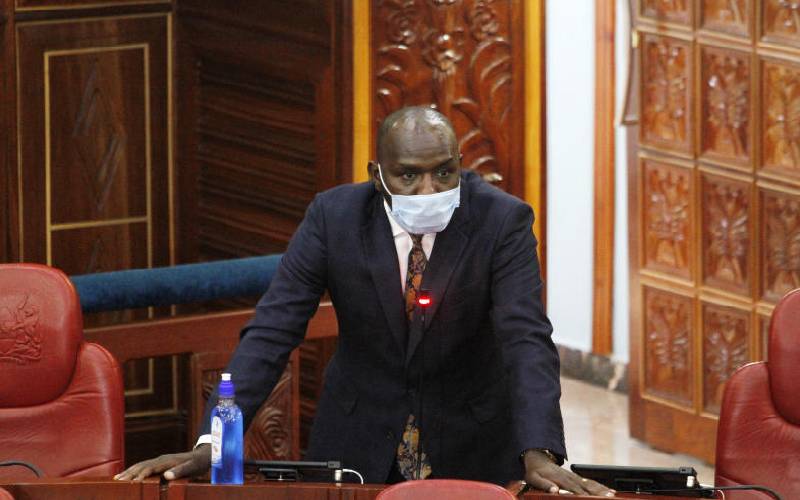×
The Standard e-Paper
Home To Bold Columnists

Elgeyo Marakwet Senator Kipchumba Murkomen saw his proposal for an 11-member select committee to probe former Kiambu Governor Ferdinand Waititu rejected in the Senate. [File, Standard]
The battle to save or sink beleaguered Kirinyaga Governor Anne Waiguru has exposed the partisan politics fueled by Jubilee's Kieleweke and Tangatanga factions.